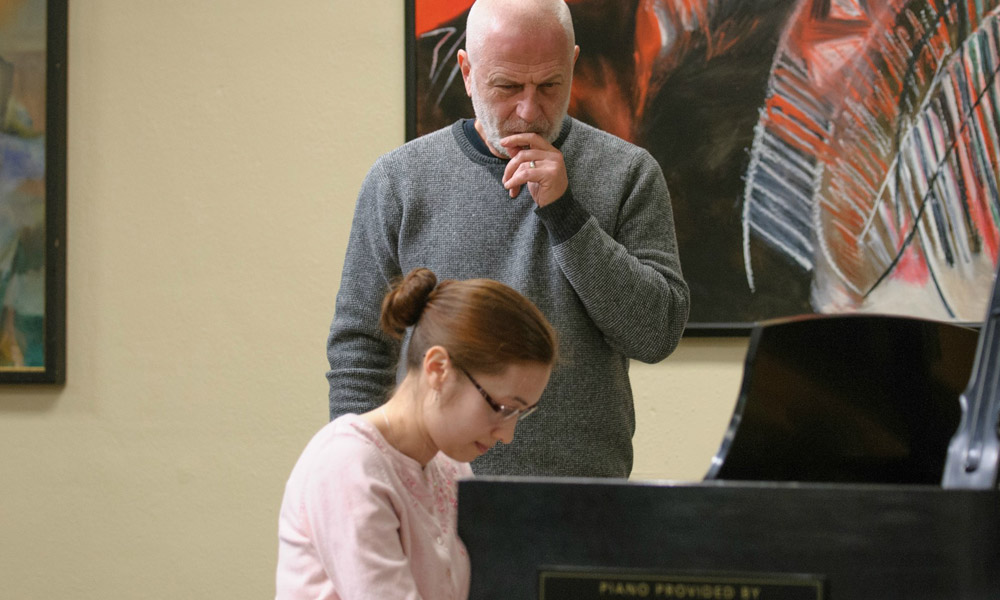Page 194 • (2,032 results in 0.058 seconds)
-
. Mossi cavalry from northern Ghana swept onto the Mossi plateau of central Burkina Faso in the 15th century. Farming peoples, which then included the Dogon, Lela, Winiama, and Nuna, populated this area. Those who did not flee intermarried with the Mossi, resulting in the diversity of sculpture and mask designs found on the plateau today. The contemporary Mossi are primarily famers, tending to crops of millet, sorghum, maize and groundnuts. In the north, some Mossi raise livestock. The Mossi language
-
Pyramid Puzzles Aja Hauff In this presentation we examine Tricolor Pyramid puzzles. We talk about how to solve them, present patterns which are especially important for us to consider, and discuss how you may create your own puzzles. This talk provides a fun way to see linear algebra through a new lens. Session 21:00-1:25pm – Food Access in Washington State: Using Levene’s Test to Inform 3D Visualization Chris Anderson Packages developed for the statistics programming language R are used to display
-

requests, all the way to natural language processing limited only by the programming and the AI engine behind it. With the rise of chatbots, brands can feasibility fulfill the promise of social media: personal, trackable, scalable conversations and insights directly from the people your organization is aiming to serve. Rather than sending your customers through a call center or hoping they’ll find what they’re looking for on your website, if communication with your brand could be as simple and as easy
-

China as you pursue your master’s? I’m applying to music schools in China so I can be immersed in the Chinese language and still continue my studies in piano. I am interested in Chinese interpretation work, and of course I want to continue teaching and playing piano—that is a lifelong gift. I am also interested in continuing research on my senior project, called “The Evolution of Piano Pedagogy and Culture in China.” What are your other plans and hopes for the future? Besides using piano and Chinese
-

, before finding out this process is now completely automated, an apparent trend in newsmaking. I walk into the anchors’ set, expecting makeup artists dusting faces. I’m surprised to find only three broadcasters, who are quickly identifiable by perfect Hollywood smiles. I step out to talk to a technician, who tells me the show is automated by a computer and describes the process using technical language. I nod and pretend to understand, watching a woman enter numbers into spreadsheets between sips of a
-
designations, and the ethical/political effects of such questions. (4) PHIL 229 : Human Rights - VW This course examines historical development of philosophical notions associated with "rights-based" language in domestic and international political life, and how these concepts are essential to understand the emergency and dominant discourse of human rights post 1948. (4) PHIL 231 : Ancient Philosophy - VW The development of philosophical thought and methods from the Pre-Socratic period to the end of the
-

play piano much because I was too busy with other classes. It was also at this time when … I decided to switch my religion major to a music major—it seemed like the perfect excuse to practice piano more! How do you hope to use both majors in China as you pursue your master’s? I’m applying to music schools in China so I can be immersed in the Chinese language and still continue my studies in piano. I am interested in Chinese interpretation work, and of course I want to continue teaching and playing
-

able to play piano much because I was too busy with other classes. It was also at this time when … I decided to switch my religion major to a music major—it seemed like the perfect excuse to practice piano more! How do you hope to use both majors in China as you pursue your master’s? I’m applying to music schools in China so I can be immersed in the Chinese language and still continue my studies in piano. I am interested in Chinese interpretation work, and of course I want to continue teaching and
-

institutions in the U.S. Navigating college can be difficult for any student, but it’s particularly challenging when you or your family might not understand the ins and outs of higher education. For those learning to navigate the language and culture of college, here are five things every current and incoming first-in-the-family student should know. And Gurjot Kang ’21 — a current first-generation student living in the “First in the Family” community in Stuen Hall — shares her perspective on all five. 1
-

Kris Plaehn, the center’s Executive Director, that was an intentional part of the Center’s design process. “It’s flexible space — we want students to see where the support (systems) are,” Plaehn said. “(We wanted) to build open space that students can configure however they want to. You can make an appointment with a research librarian, the writing center, a language tutor, any sort of academic assistance tutor, an academic advisor or reserve one of these rooms … all in the same place.” The Center
Do you have any feedback for us? If so, feel free to use our Feedback Form.


